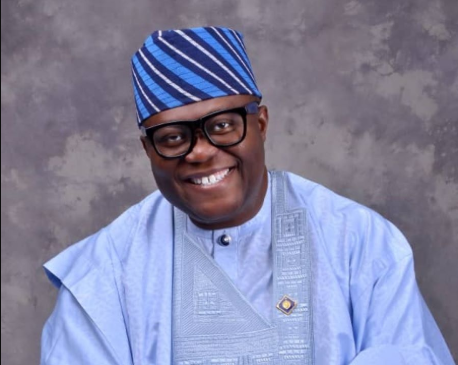Ehi Braimah, the Publisher and Editor-in-Chief of NaijaTimes, has delivered a scathing critique of the state of Nigerian democracy, pointing fingers at politicians as the primary threat to its survival. He argues that the lack of sincerity among political leaders, coupled with the manipulation of the judiciary, is systematically undermining the democratic foundations of the country. This erosion of democratic principles is further exacerbated by a pervasive lack of transparency and accountability, particularly at the state level, where governors operate with minimal public scrutiny regarding the allocation and utilization of public funds. Braimah’s assessment paints a bleak picture of a nation grappling with a crisis of leadership, where political expediency trumps the welfare of the citizenry.
Braimah’s condemnation extends to the prevailing socio-economic challenges plaguing Nigeria. He highlights the cost-of-living crisis, crippling unemployment, and pervasive poverty as direct consequences of poor governance and a lack of political will to address the root causes. He particularly criticizes the government’s neglect of critical sectors like education and health, leading to recurring strikes by doctors, teachers, and lecturers who are often owed substantial amounts in unpaid allowances. This disregard for the welfare of essential workers, Braimah argues, is symptomatic of a broader disregard for the well-being of the Nigerian people. He advocates for stricter measures to ensure accountability, proposing a law that mandates governors to provide a comprehensive account of previous allocations before receiving further funds.
The veteran journalist also addressed the issue of the minimum wage, advocating for a substantial increase to N150,000, given the current economic realities. He argues that the current N70,000 minimum wage is woefully inadequate to meet the basic needs of Nigerian workers, contributing to the increasing wave of emigration as citizens seek better opportunities abroad. This brain drain, he suggests, further weakens the nation’s potential for growth and development, as skilled professionals are drawn away by the promise of a more secure and prosperous future elsewhere. Braimah’s call for a higher minimum wage underscores his concern for the economic plight of ordinary Nigerians and the need for policies that reflect the true cost of living.
Braimah’s criticism extends beyond the economic realm to encompass the deplorable state of infrastructure across the country. He expresses dismay at the dilapidated condition of roads, bridges, and other essential infrastructure, even in urban areas. This neglect, he argues, is not only a testament to poor governance but also a breeding ground for corruption. He posits a direct correlation between the quality of life for citizens and the prevalence of corruption, suggesting that when people’s basic needs are met, the incentive for corrupt practices diminishes. This perspective highlights the interconnectedness of various societal ills and the need for a holistic approach to address them.
Further emphasizing the pervasive nature of the crisis, Braimah points to the troubling phenomenon of security personnel protesting over unpaid entitlements. This, he argues, is a stark indicator of the government’s failure to prioritize the very institutions tasked with maintaining law and order. The fact that those entrusted with national security are themselves facing economic hardship underscores the depth of the crisis and the urgent need for comprehensive reforms. This situation, Braimah suggests, not only demoralizes the security forces but also erodes public trust in the government’s ability to protect its citizens.
In conclusion, Ehi Braimah’s assessment paints a deeply concerning picture of Nigerian democracy facing multiple threats from within. He identifies the lack of sincerity and accountability among political leaders, coupled with the manipulation of the judiciary, as key factors undermining democratic principles. He further criticizes the government’s neglect of critical sectors, the inadequate minimum wage, the deplorable state of infrastructure, and the troubling situation of unpaid entitlements for security personnel. Braimah’s call for greater transparency, accountability, and a renewed focus on the welfare of the Nigerian people serves as a stark reminder of the urgent need for comprehensive reforms to address the deep-seated challenges facing the nation. He emphasizes the interconnectedness of these issues and the importance of a holistic approach to ensure a more just and equitable future for all Nigerians.














